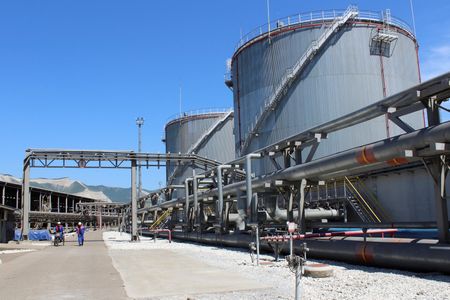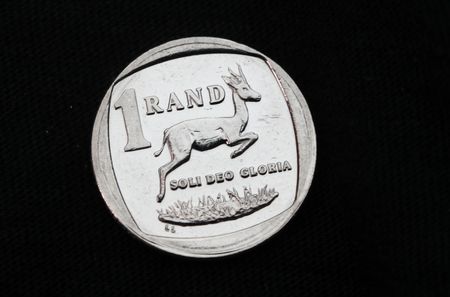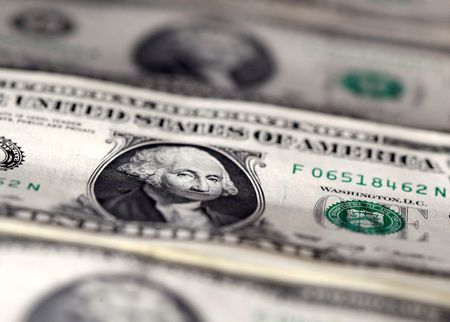By Stephanie Kelly
LONDON (Reuters) -Oil prices extended an earlier decline on Tuesday, dropping by about 2%, after news reports cited a U.S. official saying that Ukraine had agreed to a peace deal.
Brent futures were down $1.22, or 1.9%, at $62.15 a barrel at 1417 GMT. West Texas Intermediate (WTI) crude was down $1.21, or 2.1%, to $57.63.
ABC News and CBS News reported that a U.S. official said Ukraine had agreed on the terms of a potential peace deal.
A Ukrainian official told Reuters that Kyiv supported the essence of a framework for peace after talks with the U.S. in Geneva, but some of the most sensitive issues of the framework remained to be discussed between the countries’ presidents.
Ukrainian President Volodymyr Zelenskiy could visit the U.S. in the next few days to finalise a deal with President Donald Trump to end Ukraine’s war with Russia, Kyiv’s national security chief Rustem Umerov said.
“Some media outlets are reporting that Ukraine agreed to a peace deal,” UBS analyst Giovanni Staunovo said. “That said, it needs two to tango, and it remains unclear if Russia agrees as well.”
A Ukraine-Russia peace deal could lead to sanctions being lifted on Moscow, unleashing previously restricted oil supplies into the market.
Both crude benchmarks gained 1.3% on Monday as rising doubts about a peace deal reduced expectations for the unfettered flow of Russian crude and fuel supplies.
The overall outlook for crude oil supply and demand balances in 2026 is looser amid numerous forecasts that supply growth will exceed demand increases next year. Oversupply concerns have dampened market sentiment recently.
“In the short term, the key risk is oversupply and current price levels seem vulnerable,” Priyanka Sachdeva, senior market analyst at Phillip Nova, said in a note on Tuesday.
Because of new sanctions on Russian oil majors Rosneft and Lukoil and rules against selling oil products refined from Russian crude to Europe, some Indian refiners have cut back their purchases of Russian oil, particularly private company Reliance.
With limited options for sales, Russia is looking to increase exports to China.
On Tuesday, Russian Deputy Prime Minister Alexander Novak said Moscow and Beijing had been discussing ways to expand Russian oil exports to China.
Overall though, market analysts remain focused on the potential for wider supply and demand imbalances.
Deutsche Bank sees a 2026 crude oil surplus of at least 2 million barrels per day and no clear path back to deficits even by 2027, the bank said in a note on Monday.
“The path forward into 2026 remains a bearish one,” analyst Michael Hsueh said.
Oil markets found some support from increasing expectations the U.S. Federal Reserve will cut interest rates at its December 9-10 policy meeting, with Fed members indicating their support for a cut.
Lower interest rates could stimulate economic growth and strengthen oil demand.
(Reporting by Stephanie Kelly in London, Ashitha Shivaprasad in Bengaluru and Jeslyn Lerh in Singapore. Additional reporting by Ahmad Ghaddar in London. Editing by Christian Schmollinger and Mark Potter)









